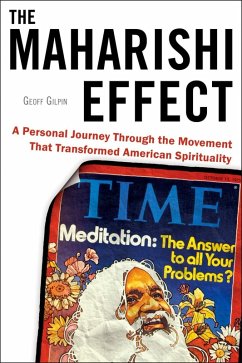Like hundreds of thousands of young people, Geoff Gilpin entered the Transcendental Meditation movement in the early seventies, when its guru, the Maharishi Mahesh Yogi, was fresh in the public mind as the spiritual guide to the Beatles and the man who made "meditation" a household word. The movement's Iowa campus was a center of spiritual idealism and healthy living.
Gilpin left after five years, settling into a successful career in the software business. Two decades later, wistful over the past and concerned by the increasingly harsh tone of the Maharishi's public pronouncements, Gilpin decided to return and find out what had become of the spiritual community of his youth.
His move back to Fairfield, Iowa, proved both revealing and unsettling. He rediscovered what had drawn his generation to Eastern spirituality - and what he and his cohorts had lost in following the usual path to careerism. But he also experienced disturbing changes in a spiritual organization that - while attracting money, celebrity, and clout - had seemingly drifted from its early ideals. Its inner culture, Gilpin observed, had divided into haves and have-nots, in ways both subtle and obvious. The Maharishi - believed to be in his late eighties or early nineties and now living in Holland - was promoting projects that involved global government, third-world rulers, claims of levitation, and grandiose fund-raising campaigns.
The Maharishi Effect is one man's bittersweet chronicle of innocence found and lost in the movement that, more than any other, defined spirituality for a generation.
Dieser Download kann aus rechtlichen Gründen nur mit Rechnungsadresse in A, B, BG, CY, CZ, D, DK, EW, E, FIN, F, GR, HR, H, IRL, I, LT, L, LR, M, NL, PL, P, R, S, SLO, SK ausgeliefert werden.









